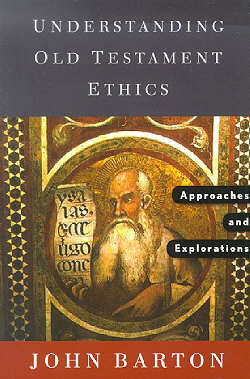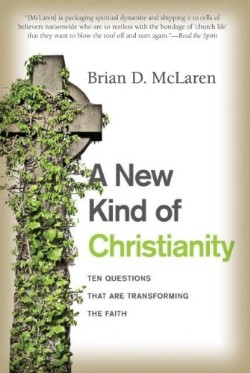Understanding Old Testament Ethics
$42.00
1. Understanding Old Testament Ethics
2. Natural Law And Poetic Justice In The Old Testament
3. The Basis Of Ethics In The Hebrew Bible
4. Reading For Life: The Use Of The Bible In Ethics
5. Virtue In The Bible
6. Amos’s Oracles Against The Nations
7. Ethics In Isaiah Of Jerusalem
8. Ethics In The Isaianic Tradition
9. Theological Ethics In Daniel
Additional Info
How can we best understand the different ways that ethical issues are addressed in the Hebrew Bible? And how might that understanding usefully inform ethical decision making in our own day?
These are the two key questions explored by John Barton in part 1 of this study, in which he looks at how the Bible’s narratives, as well as its collections of laws, oracles, and wisdom writings, all contribute to our understanding of the whole. In part 2, he focuses on the moral vision of the Prophets-especially Amos, Isaiah, and Daniel-providing the reader with the fruits of his research in ethics in the prophetic literature over the last few decades.
The result is a book that enables students of the Bible, ethics, and other theological disciplines to grasp firmly the main issues at stake in current scholarly debate about the ethical legacy of the Old Testament. At the same time, the reader will gain a thorough appreciation of Professor Barton’s own groundbreaking research in this field and how his studies have advanced our understanding of the ways in which the prophets, sages, and storytellers of ancient Israel expressed their visions of God’s justice and goodness-both for their own time and for generations to come
in stock within 3-5 days of online purchase
SKU (ISBN): 9780664225964
ISBN10: 0664225969
John Barton
Binding: Trade Paper
Published: March 2003
Publisher: Westminster John Knox Press
Print On Demand Product
Related products
-
Great Divorce
$17.99C.S. Lewis takes us on a profound journey through both heaven and hell in this engaging allegorical tale. Using his extraordinary descriptive powers, Lewis introduces us to supernatural beings who will change the way we think about good and evil. In The Great Divorce C.S. Lewis again employs his formidable talent for fable and allegory. The writer, in a dream, finds himself in a bus which travels between Hell and Heaven. This is the starting point for an extraordinary meditation upon good and evil which takes issue with William Blake’s The Marriage of Heaven and Hell.
Add to cartin stock within 3-5 days of online purchase
-
God For The Rest Of Us Pastors DVD Kit
$19.99The Pharisees called Jesus “a friend of sinners.” He took it as a compliment. Would you? In these resources, Pastor Vince Antonucci and his unusual church that reaches out to people on the Las Vegas Strip explore a powerful question: what if God is not just for the faithful, church-going, or holier-than-thou types – what if God is for the rest of us? This small group study expands viewpoints, overcomes stereotypes, and models how to really love people like Jesus does. The Pastor’s Kit includes everything needed to plan a six-week teaching series around the concepts presented in the Small Group Study. It includes:
Special video message for pastors
Video guide for implementing a church-wide program
Six sermon outlines
Six short video clips to accompany each week’s sermon
Six sermon bumpers (short video clips to introduce each week’s sermon)
Digital art files to use in creation of bulletins and other promo materialsAdd to cartin stock within 3-5 days of online purchase
-
New Kind Of Christianity
$16.99After the hailstorm of controversy stirred up by the hardcover, we hope the paperback release keeps the debate going. One of the most innovative Christian voices today and author of the controversial A New Kind of Christian faces head-on the questions that will determine the shape of the faith for the next 500 years.
Add to cart1 in stock (additional units can be purchased)
















Reviews
There are no reviews yet.